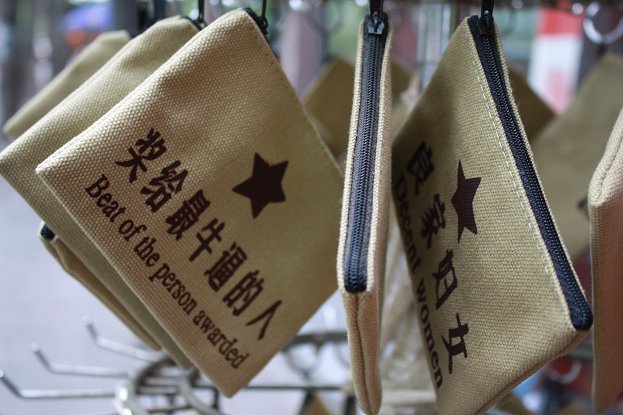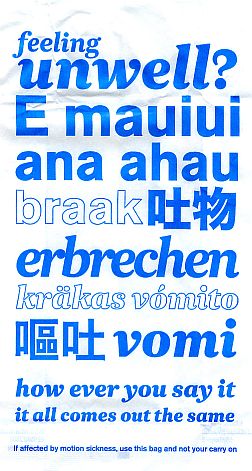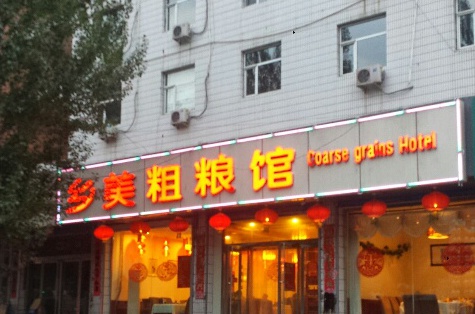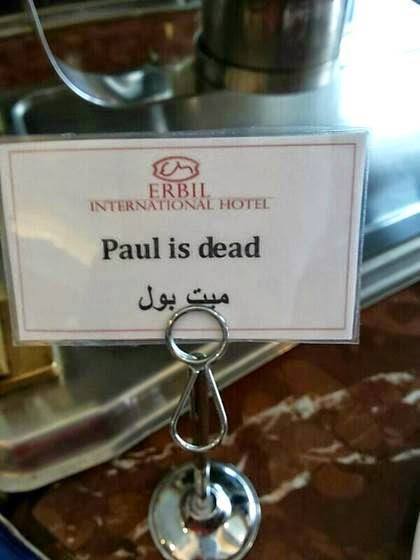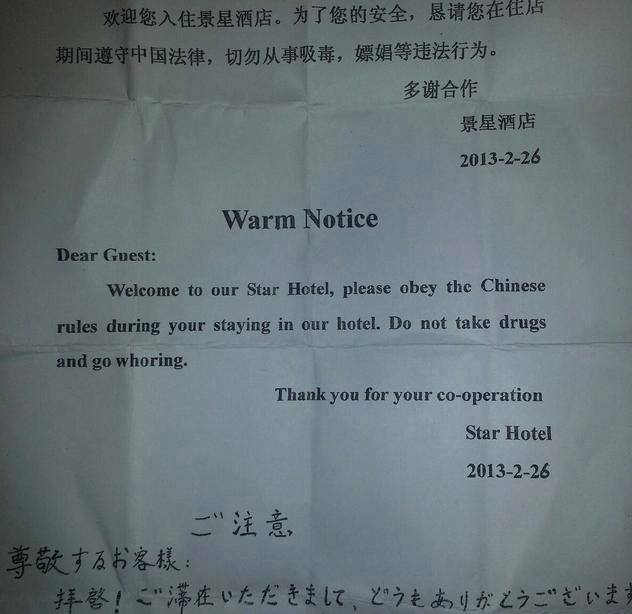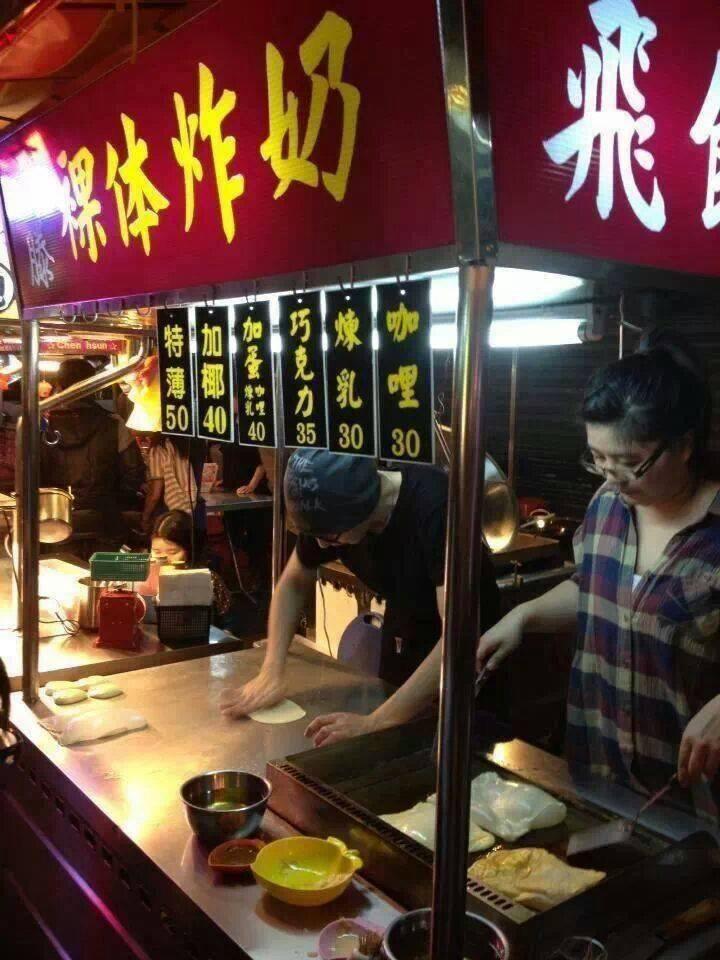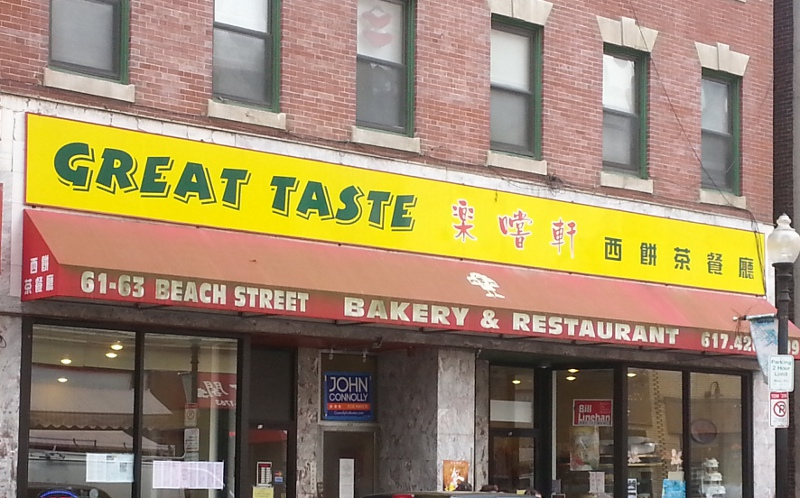Archive for Lost in translation
Pan-Romance spelling in San Antonio
Scott Cacciola, "The United Nations of the Hardwood: San Antonio Spurs Use Language Barriers to Their Advantage", NYT 6/15/2014:
The Spurs, as has been well established, have developed an international flair under Coach Gregg Popovich. Eight players on the current roster were born outside the United States. Loosely translated, that means the Spurs use at least four languages — English, Spanish, French and Italian — to communicate among themselves.
Read the rest of this entry »
Beat of the person awarded
Steven Marzuola writes:
I am a technical translator and amateur linguist, and Language Log is part of my regular reading.
So is reddit, and tonight it led me to this link, which is a set of pictures taken by a young couple living in China.
They're all interesting, but the one I wanted you to see is the last one:
Read the rest of this entry »
Barfing in tongues
Gloria Bien sent in this scan of an airsickness bag that she found on Air New Zealand:
Read the rest of this entry »
Coarse grains hotel
Libin Zhang sent in the following photograph of a restaurant in Datong, Shanxi Province:
Read the rest of this entry »
Steamed native
Commenting on Facebook about Ben Zimmer's Language Log post on the Iraqi "Paul is dead" buffet sign, Anne Erdmann shared this buffet sign from China:
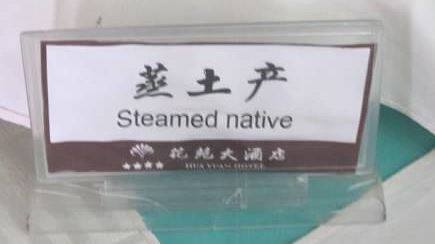
Read the rest of this entry »
Paul is dead
From Ajam Media Collective's Facebook page, a surprising buffet sign at Erbil International Hotel in Erbil, the capital of Iraqi Kurdistan:
Read the rest of this entry »
Warm Notice
A Hong Kong friend of Jeff DeMarco posted this photograph on Facebook (it's probably from Beijing, but he's not sure about that):
Read the rest of this entry »
Naked dough
Reader Janet sent in this photograph of a food stall in Taiwan (source):
Read the rest of this entry »
Great taste
Victor Steinbok sent in this photograph of a dim sum restaurant in Boston:
Read the rest of this entry »
"Gerpanese" and addresses
Hiroshi Kumamoto received this envelope, where someone tried to translate "Herr" into Japanese and went wrong:
Read the rest of this entry »
You can you up
In "Chinglish in English?", we examined the expression "no zuo no die" and came to the conclusion that, no matter what it might mean, it has not — as has been claimed by devotees of Chinglish — become a part of English vocabulary; it has not even become a part of English slang.
Read the rest of this entry »

